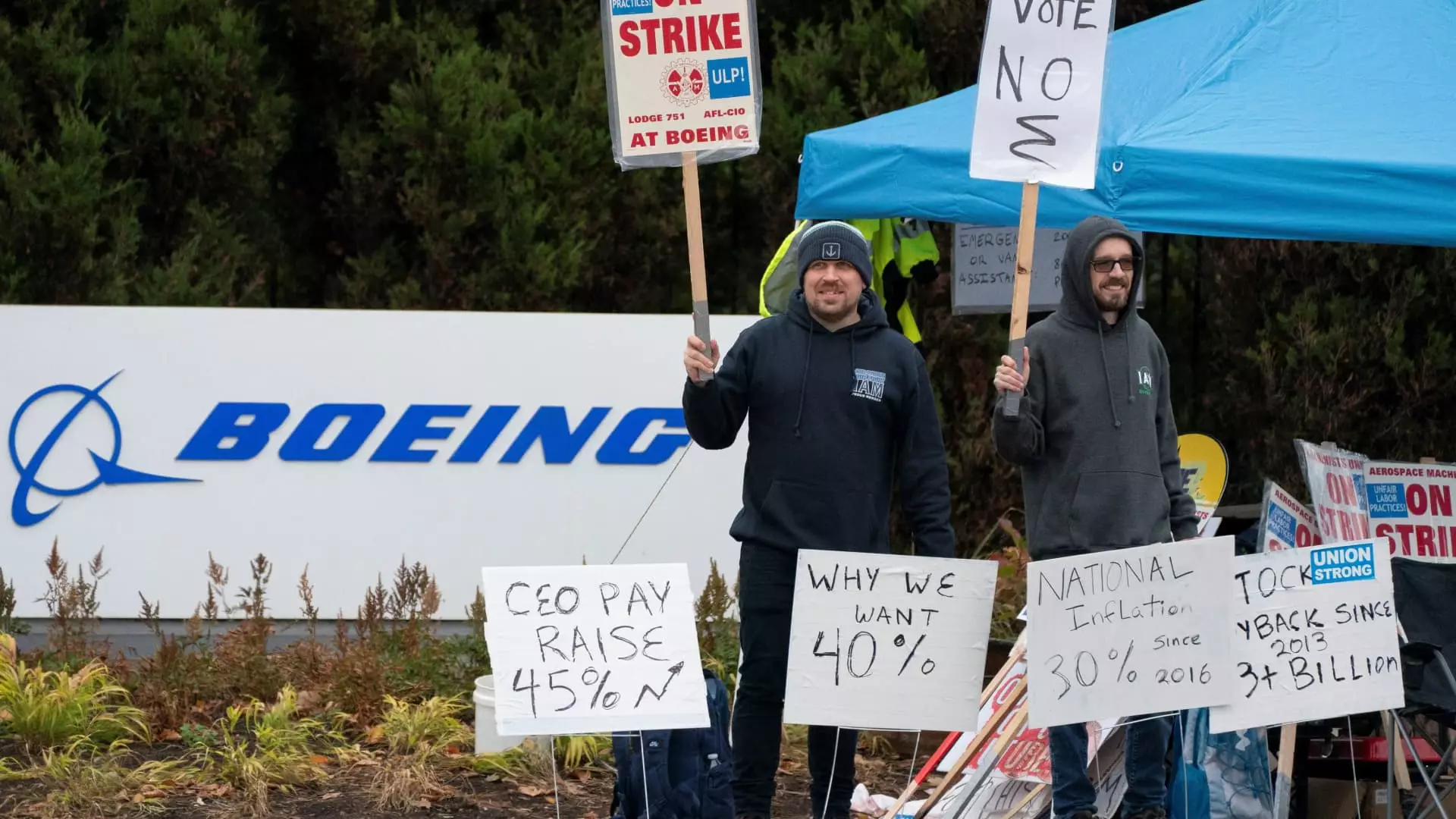In the complex landscape of labor negotiations, Boeing and the International Association of Machinists and Aerospace Workers District 751 recently reached a tentative agreement that aims to resolve a strike that has seen over 32,000 machinists walk off the job. After seven grueling weeks of halted production and critical financial losses for the aerospace giant, the newly negotiated contract will be put to a vote on Monday. Union representatives have encouraged their members to endorse the proposal, emphasizing the urgency in returning to the factories to resume operations.
Boeing faces mounting pressure as it struggles to contain the fallout from this disruptive action. The contract includes an increased wage offer—a substantial shift from a previous proposition—by raising general wage increases to 38% over four years, a rise from a previous 35%. The cumulative nature of these increases means that workers might see nearly a 44% salary hike in total. In addition, employees have the option of a one-time $12,000 ratification bonus or a combination of a reduced $7,000 bonus along with a $5,000 contribution to their 401(k) plans.
The sentiments expressed by union leaders reveal the emotional and strategic dynamics in labor negotiations. The striking workers are acutely aware that every negotiation has its limits, and they find themselves at a crossroads where further withholding of labor risks compromising their achievements. The union’s public reminder to its members about the precarious nature of prolonged strikes resonates deeply in a labor environment where both sides hold considerable stakes.
Moreover, Boeing’s critical situation underscores the urgent need for a resolution. With Mr. Ortberg, Boeing’s CEO, unambiguously stating the importance of a collective effort to “rebuild the business,” the language reflects a clear acknowledgment of the interdependence between the company and its workforce. This interdependence is further complicated by the looming backdrop of the Biden administration’s involvement, with Acting Labor Secretary Julie Su playing a mediating role in the ongoing discussions.
Beyond the direct implications for Boeing’s finances, the strike’s effects are rippling through the broader economy. The October U.S. jobs report highlighted a contraction in employment numbers partially attributable to the strike. As Boeing is a major player in the U.S. export sector, any lull in production has significant implications for economic metrics.
President Biden commended the union for its efforts, emphasizing the importance of fair compensation for workers who have long endured rising living costs, particularly in the Seattle area, where the presence of major tech companies has escalated the cost of living. This acknowledgment not only reinforces the political stakes surrounding labor disputes but also highlights the growing necessity for companies to adapt to regional economic pressures when negotiating worker compensation.
Despite these developments, the road ahead remains fraught with challenges. The union’s push for enhanced pay and better working conditions is not merely a response to immediate grievances; it reflects a broader trend of increased labor movements seeking fairness in an evolving economic landscape. Workers are justifiably wary of Boeing’s future strategies, especially as the company relocates certain production lines to non-union facilities, raising concerns about its commitment to unionized labor practices.
Furthermore, Boeing’s historical struggles, including production flaws and safety incidents that have damaged its reputation, compound the urgency for both sides to reach a sustainable agreement. With previous reports of substantial losses and ongoing challenges in maintaining cash flow, the aerospace behemoth’s executives face scrutiny not only from shareholders but also from employees seeking mutual growth and recovery.
Ultimately, the interaction between Boeing and its unionized workforce represents a critical juncture not only for the employees involved but also for the broader landscape of labor relations in the U.S. The forthcoming vote will not just dictate the future of Boeing’s operations but will likely set a precedent for how similar negotiations unfold in the future, especially as companies navigate post-pandemic realities while attempting to retain skilled labor in an increasingly competitive environment. As both sides strive for resolution, a return to unity and shared purpose may be the key to driving forward toward a sustainable future.

Leave a Reply